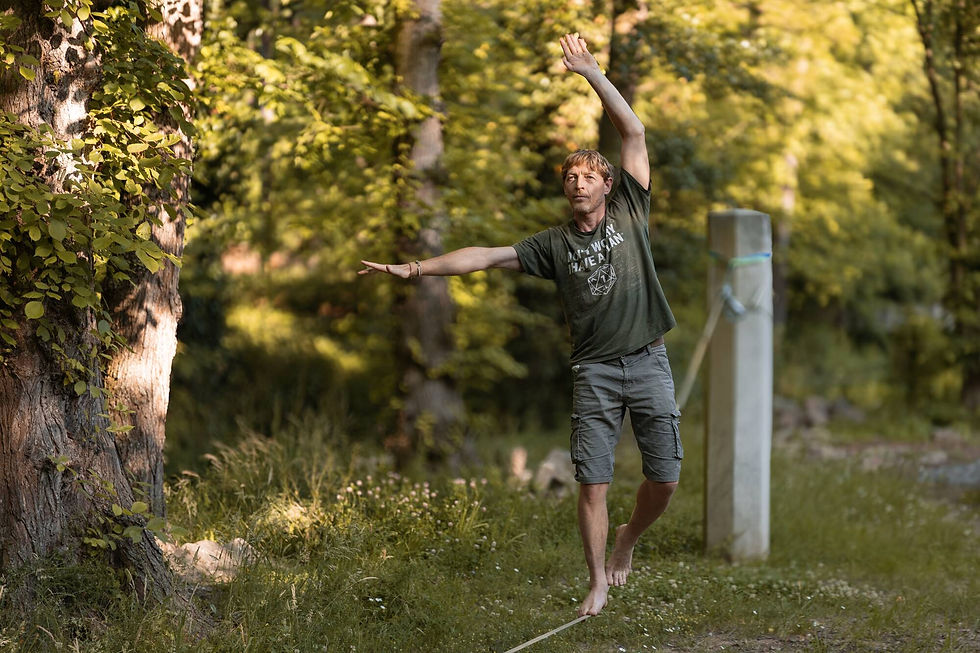
About me
My journey led me from a fascination with mathematics and building RSJ in financial markets to launching projects and foundations that support science, education, aid for those in need, the fight against corruption, and the development of a free society – from the H21 Institute and Znesnáze 21, the D21 method, to innovations like Mathesso, Abaku, and open dialogue in the Talks 21 podcast.
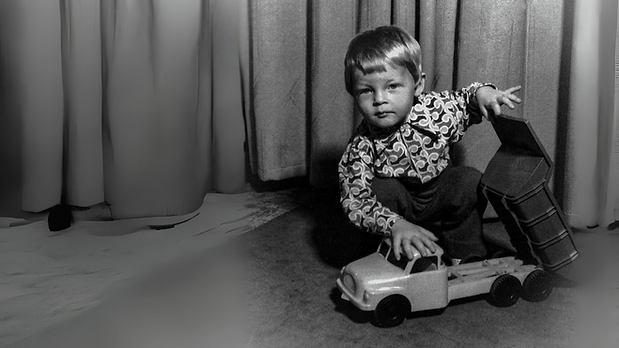

Childhood and a Love for Mathematics
I’ve always been fascinated by the world of numbers. Ever since I was four years old, and my father explained negative numbers to me using a thermometer, I knew I wanted to be a mathematician. I was drawn to the logic and structure of math. When applying to high school, I chose what was then the best math-focused high school – the Wilhelm Pieck Preparatory School, during the times of Czechoslovakia.
To me, mathematics wasn’t just a school subject – it was a way to perceive the beauty of the world around me. It’s not just about numbers and formulas – it’s abstract thinking with a strong logical framework, which has countless real-life applications and expands our thinking.
Mathematics is immutable, fixed - and at the same time beautiful, even artistic structures are hidden within it.
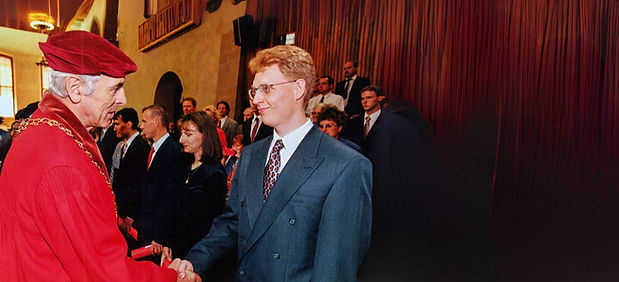

Education and Academic Career
Mathematics has always been a constant in a ever-changing world. While the laws of physics evolve with new discoveries, mathematics remains precise, stable – and most importantly, fair. It applies equally to everyone. I loved finding solutions, seeking proofs – and when it worked, the “eureka” moment was pure joy.
This passion led me to study at Charles University's Faculty of Mathematics and Physics, where I specialized in probability theory and mathematical statistics. However, my father wanted me to have a "practical" foundation, so I also studied at the University of Economics in Prague at the same time. This dual path eventually led to a scholarship at Bradley University in the US, where I completed an MBA in finance.
After returning home, I finished my master's at Charles University and continued with a PhD in Financial Mathematics at Carnegie Mellon University. It was a demanding yet defining period, giving me top-tier theoretical training and real-world experience in financial markets.
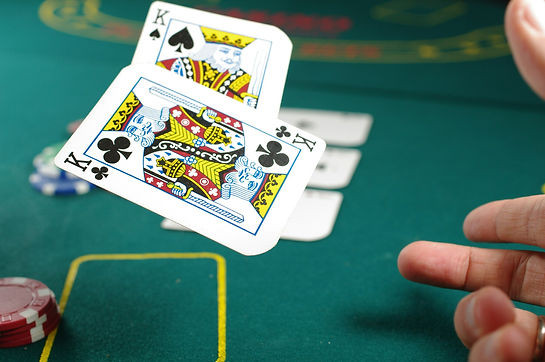

Monte Carlo, Blackjack and My First Global Success (1995)
During my MBA studies, a friend told me it was possible to make money by counting cards in blackjack at casinos. He showed me The World’s Greatest Blackjack Book—and I was instantly hooked. I discovered that the method actually worked. At the time, I had very little money—my scholarship was about $121 a month—and I saved whatever I could. To verify that one could systematically (and mathematically) win in a casino, I began writing software based on Monte Carlo simulations. After about six months, I completed the first working version and called it Statistical Blackjack Analyzer (SBA). In fact, I started playing in casinos with minimal bets even before the software was fully finished.
SBA was an analytical tool that generated statistical insights into the advantages and risks for professional players, helping them optimize both their gameplay and betting strategies. A breakthrough moment for me was discovering that my software was more than nine times faster than the second-fastest program at the time. That’s when I decided to start selling it to blackjack players.
This wasn’t trading yet—but it was the first time I made real money. I became internationally recognized as an expert in blackjack betting optimization. And because my expert play allowed me to consistently win against casinos, I was listed in the "Griffin’s Book"—a registry of players that casinos ban from playing blackjack on their premises.
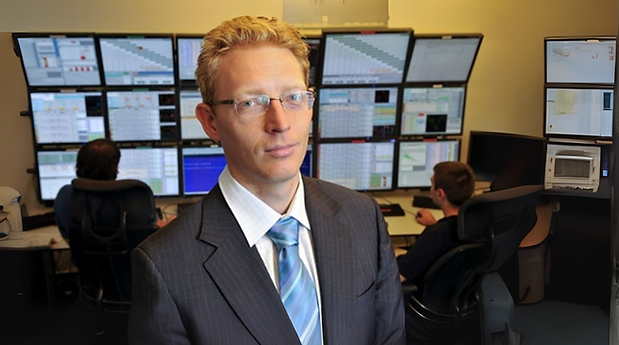

Business and Financial Markets (Mathematics in the World of Money - RSJ)
Thanks to the voucher privatization process, I became deeply interested in financial markets, where I saw a real opportunity to apply mathematics in the practical world of trading. I found financial markets to be an extremely demanding—and at the time, I also believed—fair environment. In 1995, I founded RSJ.
We didn’t take the path of speculation. Instead, we relied on precise analysis and mathematical algorithms—and it worked. In 2002, we entered the London derivatives exchange as a market maker, focusing on interest rate futures. We were the first in the world—and for a long time the only ones—who managed to apply results from theoretical mathematics and utility-based economic theory directly into live trading. That became our key competitive advantage.
In 2005, RSJ became an official market maker on the London derivatives exchange, and over time we succeeded on a broader global scale. RSJ ranked among the largest trading firms in the world.
Since childhood, freedom, justice, and science have been extremely important to me. And thanks to RSJ’s financial success, I was finally able to start giving back, supporting science and other publicly-beneficial projects. At the same time, I became increasingly aware of how deeply rooted corruption was in our country. It bothered me—and I wanted to do something about it. I wanted to support people who had the courage to uncover and confront corruption head-on.

Neuron: Science as an Investment in the Future
I’ve always believed that science has enormous potential to move the world forward, but only if we support the people who create it. Thanks to the financial success of RSJ, I began supporting my alma mater, the Faculty of Mathematics and Physics (Matfyz), as early as 2006. A few years later, I decided to take a more systematic approach, and in 2009, I laid the groundwork for a broader initiative.
In 2010, I established the Karel Janeček Foundation for Science and Research. From the beginning, our ambition was not only to recognize outstanding scientists but also to popularize science and bring it closer to the public - and we succeeded. The foundation gained strong media visibility and became a prominent voice in the scientific community.
Thanks to its success and the growing interest of other philanthropists, I decided to rename it in 2013 to the Neuron Endowment Fund (originally the Karel Janeček Foundation). Its mission remained unchanged: to support talented young researchers, honor outstanding figures in Czech science, and show that we too have people who are changing the world. Neuron is not just about grants and awards—it’s about believing in curiosity, courage, and deep understanding. It’s about the conviction that science is worth supporting not only for its results but for the values it brings to society as a whole.
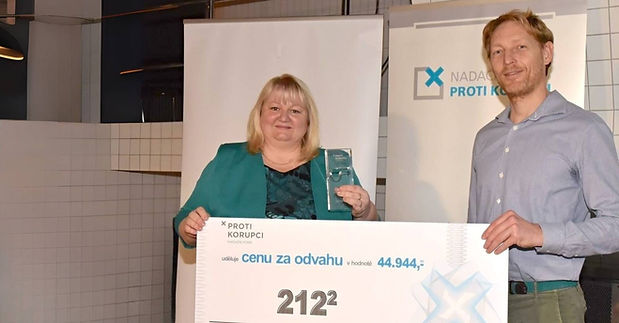

Corruption: Tackling Root Causes, Not Just the Symptoms
After years in the world of finance, I felt the need to direct my experience and energy toward something with real social impact. In 2011, together with Stanislav Bernard and Jan Kraus, we founded the Anti-Corruption Endowment. Our goal was to uncover and publicize cases that would otherwise remain hidden.
However, I soon realized that corruption is merely a symptom of deeper systemic flaws. Real change requires reforming the very mechanisms through which people gain power. It’s not enough to put out fires—we need to address the root causes.
This realization led me to develop the D21 voting method. If we want to change the outcome, we must change the way people reach decision-making positions—and by extension, the kind of people and motivations that lead them there.
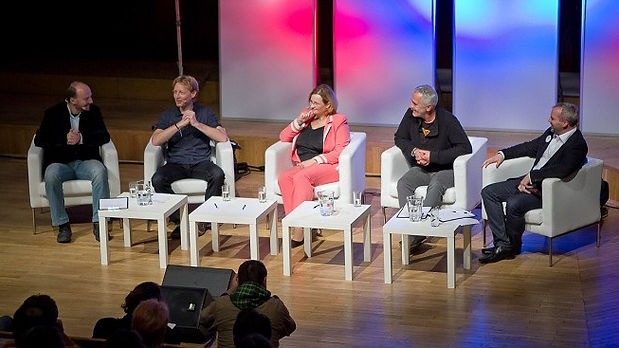

Positive Evolution – An Anti-Corruption Electoral System
After my experience with the Endowment Fund Against Corruption, I realized that real change requires going deeper. It’s not enough to simply uncover or fight individual cases of corruption—we need to address the root cause of why people in politics often act unethically and why the system itself is so vulnerable to manipulation.
In January 2012, I discussed with Dr. Marvanová how the current electoral system systematically enables corruption—for example, through backroom deals where seats on party candidate lists are effectively sold.
More and more, I saw how the existing system doesn’t give people the space to truly express what and whom they want to support. This often leads to public distrust and low motivation to vote.
In the fall of 2012, I founded the Positive Evolution platform, with the goal of sparking public debate about systemic reforms and ethical principles in society.
A major turning point came in early 2013 with the so-called “Klaus Treason” scandal—when President Václav Klaus declared a sweeping amnesty that resulted in the release of many economic criminals and corrupt officials. At that time, I actively initiated a constitutional complaint by the Senate against the president. Together with other non-profit organizations, and thanks to the strong efforts of Positive Evolution, we were able to gather signatures from more than thirty senators.
For several months, this lawsuit and the public debate surrounding it became a central topic in Czech society, demonstrating how crucial it is for citizens to have the power to demand justice and accountability from even the highest offices. Positive Evolution played a key role during this period, though its activity gradually faded after the case came to a head.
These experiences only deepened my conviction that systemic change is absolutely necessary. I began to search for a solution that would allow citizens to genuinely express both their trust and the diversity of their values through elections. This direction shaped my thinking and led to a fundamental shift in how I approached electoral rules.
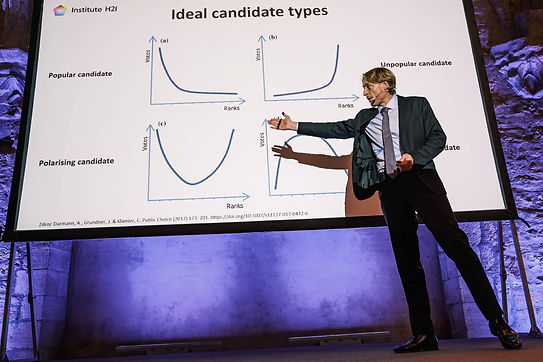

D21 – Effect of More Than One Vote
After my experience with the Anti-Corruption Endowment, I realized that true change must go deeper. I began thinking about what a voting system might look like if it gave people more space to express themselves—not just a binary choice, but the full spectrum of what they feel and believe.
That’s how the D21 voting method was born.
It’s a system in which voters can give more than one vote, allowing them to express their true preferences more accurately. Instead of being pressured to choose the “lesser evil,” they can support multiple candidates they genuinely value. The method fosters agreement rather than division—and creates room for consensus.
It also positively transforms the style of election campaigns—less aggression, more collaboration, creativity, and a search for shared values.
To further develop and implement this idea in practice, I founded the H21 Institute in 2016. We focus on researching, testing, and applying new decision-making principles in the Czech Republic and abroad—from elections to participatory projects in schools and cities. I believe this is the path toward restoring trust in decision-making—and, in society as a whole.
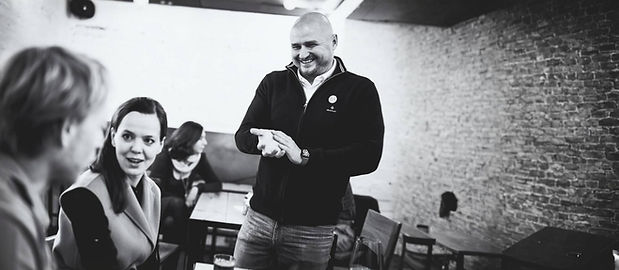

The Endowment Fund for Help (Znesnáze 21)
In 2012, I began to realize how many people were reaching out to me for financial assistance. They were personal stories, often very powerful and moving – but I also realized that dealing with each request individually was not sustainable in the long term. I felt a responsibility to help, but I wanted to approach it systematically and professionally.
That is why The Endowement Fund for Help was created - a team of people who began to devote themselves fully to this project. The idea was to create a trustworthy platform that would enable effective and verified aid to those who really need it. The basic idea remains the same to this day: aid should be accessible, transparent and guided by respect for the dignity of every person.
In 2020, NFP launched its biggest project, the Znesnáze 21 donation platform, which is the result of the fund’s long-term efforts. This is to help quickly, efficiently and systematically.
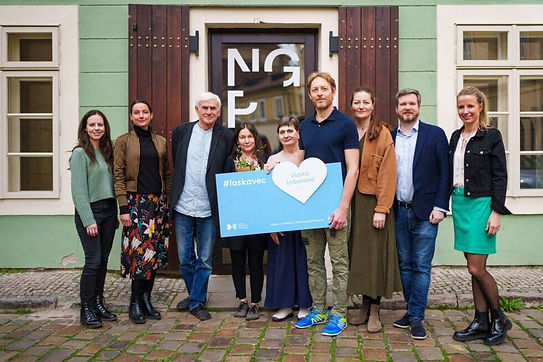

The Karel Janeček Foundation: Supporting Courage, Freedom, and Civil Society
After my experiences with the The Endowement Foundation for Help, the Endowment Fund against Corruption, Neuron, D21 and other initiatives, I felt increasingly strongly that, in addition to supporting science and systemic changes, we also need space for the development of human values – courage, responsibility, cooperation. It is not enough to change individual parts of the system. We need to support a society-wide culture based on internal integrity and conscious citizenship.
That is why I founded the Karel Janeček Foundation in 2014 , which today operates under the name Janeček Foundation. The foundation serves as a support for projects that respond to current social challenges and have a real impact. It is not just about financial support - we also provide professional guidance, methodological support and training for teams that have the courage to change things for the better. Our goal is to help implement long-term sustainable initiatives that strengthen an open, fair and value-based society.
I believe that a strong and free society does not arise from above - but primarily from below, from the concrete actions of concrete people.
And because I have been thinking for a long time about how to positively transform society, I have also created a set of so-called orthogonal values – principles that, in my opinion, capture the essence of human existence and life.
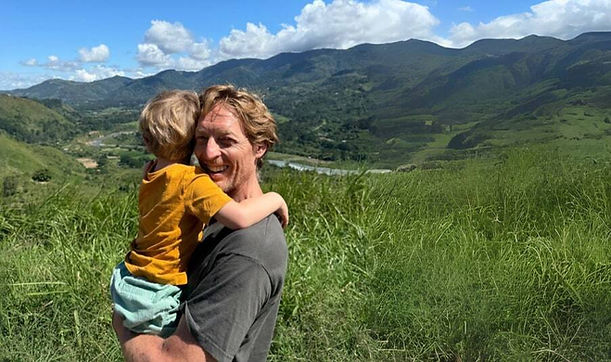

Family, Love, and a Broader View of the World
I have been a parent for a long time. In the beginning I was not the most conscious father, because I was immersed in work, performance, and analytical thinking. With my oldest daughters, I still regret not being as present and receptive.
When my son Yanis was born in 2015, I began to perceive more intensely the beauty and depth of parenthood.
Shortly after that I met my current wife, Lilia - and the beginning of our life together marked a fundamental change for me. It opened up a new worldview for me: greater trust in intuition, sensitivity, slowing down.
We got married in a Buddhist ceremony in Bhutan, and this connected not only our paths, but also our families. Our daughter Isabela was born in 2018 and our son Karel in 2021. That same year - 21 December at 12:21 - Lilia and I symbolically got married in Prague, in the church of St. Nicholas.
Today, I know that my relationship with my children is one of the most important topics in life, and when change our inner perspective, the way we look at them also changes.
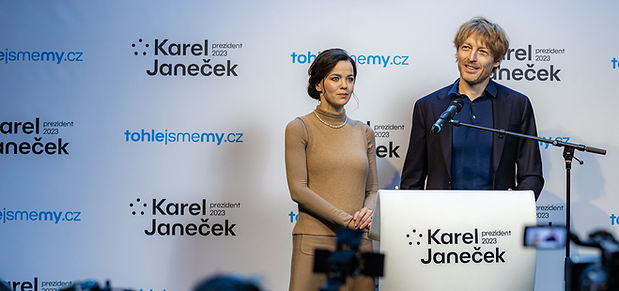

Presidential candidacy: An experience that made me stronger
In 2022, I announced my candidacy for president of the Czech Republic. I wanted to offer a different approach - based on courage, responsibility and a system that unites instead of divides. The run for the presidential office, for me, was never meant to be political or about power – but rather a tool for influence and a catalyst for positive reforms. As early as 2012, during the so-called Positive Evolution initiative, I had repeatedly declared publicly that I would never found a political party, nor would I ever become a member of one. I made the same point in 2013 when I declined an offer from Andrej Babiš to create a political party that he would fund.
I was unfortunately not admitted to the candidacy, which was unfair in my opinion which I wrote about in my articles at the time.
From today's point of view, I'm actually glad that it turned out that way. Considering the situation in Ukraine at the time, I would not have been able to carry out the fundamental reforms that I had planned.
Being eliminated from the election was disappointing for me, but at the same time it was an important experience. It assured me that I wanted to continue contributing to change - just in a different way. I don't plan to run for office anymore.
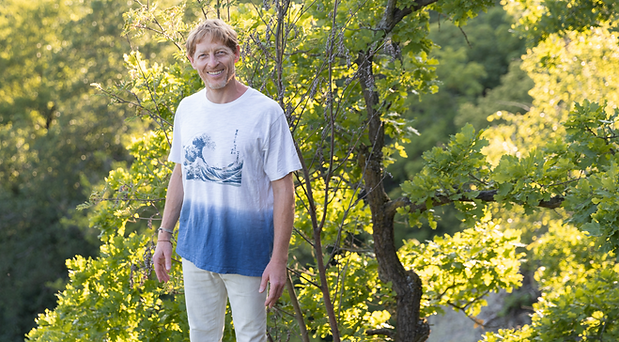

What am I Doing Today?
Today, I devote myself fully to projects that, in my opinion, have the potential to change society for the better - from education to decision-making processes to the cultivation of public space. We run the H21 Institute, which tests and implements the D21 electoral method in the Czech Republic and abroad. As part of the Janecek Foundation, I support dozens of projects that bring systemic changes and concrete help.
I founded Znesnáze 21, a trusted platform for immediate help to people in difficult life situations. I am co-creating Archa 21, a space for deep debate about the future of our civilization and the confrontation of existing systems. And I advocate that mathematics is not just a scary school subject, but a natural language full of joy and discovery - for example through the educational games Mathesso and Abaku.
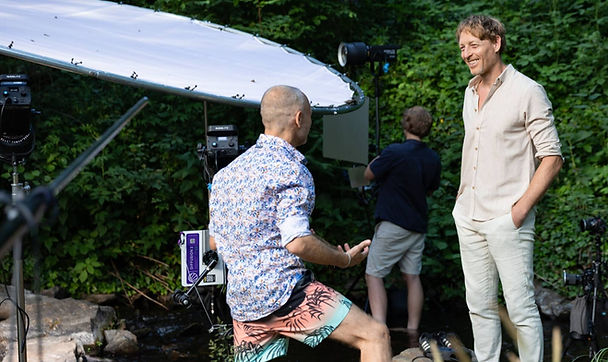

And what I'm looking forward to: Podcast Talks 21
The latest project I'm excited to embark on is the Talks 21 podcast.
In it, I conduct open and deep conversations with inspiring personalities from the fields of science, philosophy, culture, education, technology, health, spiritual development and social innovation.
The goal is to look for common denominators of change and understanding in a rapidly evolving world.